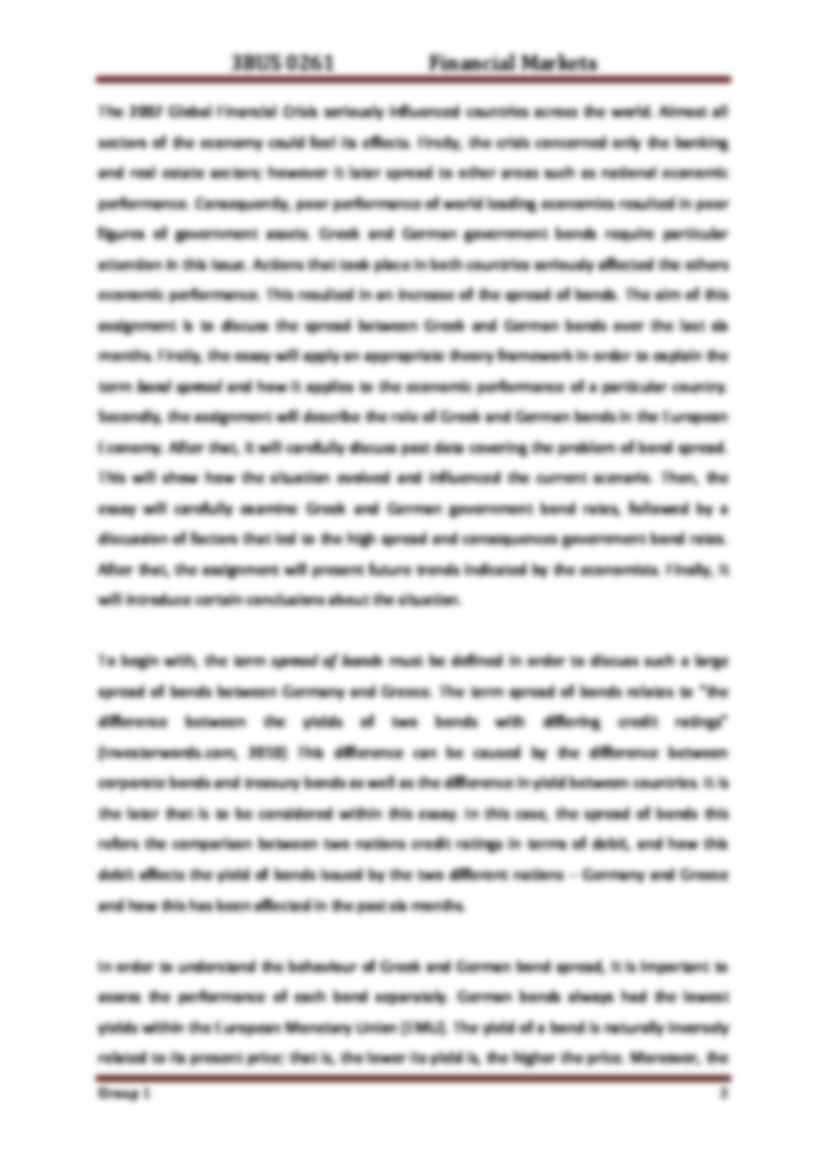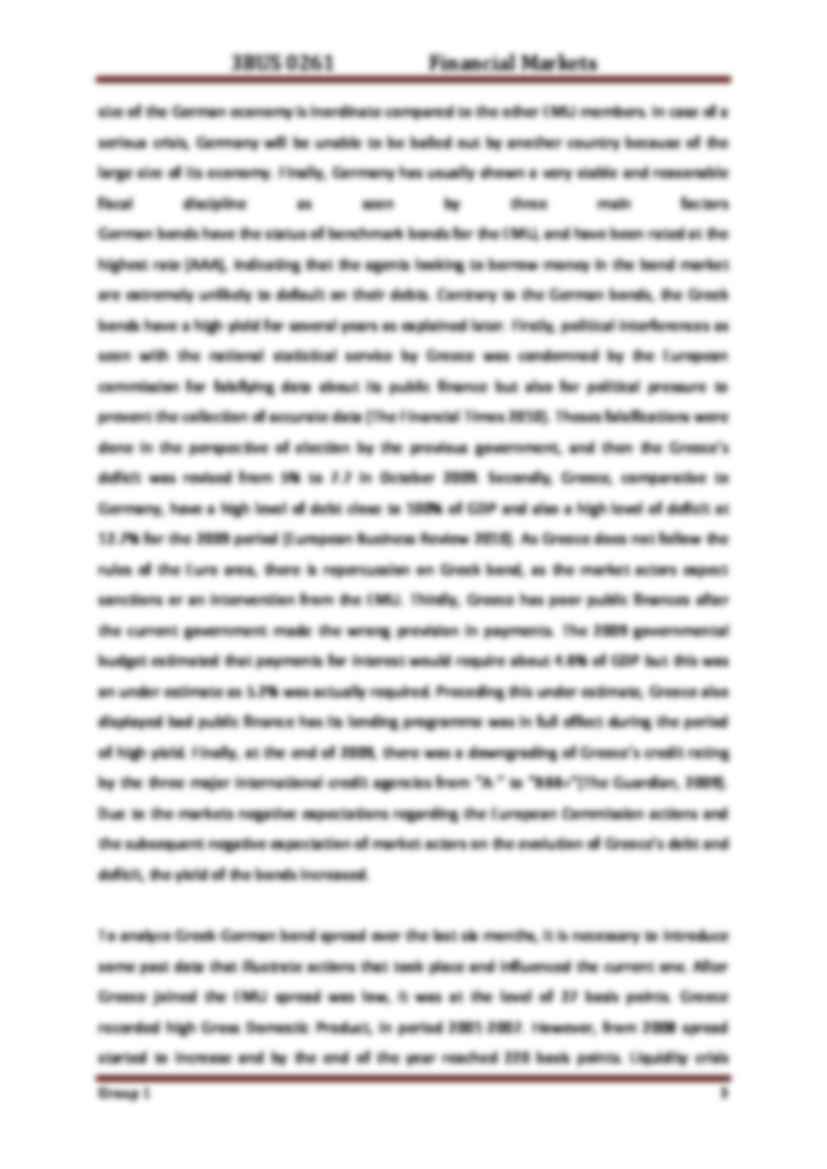To tylko jedna z 11 stron tej notatki. Zaloguj się aby zobaczyć ten dokument.
Zobacz
całą notatkę



spread between Greek and German Bonds during Financial Crisis 2007. Przedmiot: Financial Markets realizowany na University of Hertfordshire, United Kingdom. Był to projekt grupowy. Ocena otrzymana za projekt: 5
Task
Towards the end of 2009 there has been an increase in the spreads between Greek and German government bonds. Making reference to relevant theory and available empirical evidence, critically evaluate the factors explaining the above market response and how this latter evolved over the last six months.
The 2007 Global Financial Crisis seriously influenced countries across the world. Almost all sectors of the economy could feel its effects. Firstly, the crisis concerned only the banking and real estate sectors; however it later spread to other areas such as national economic performance. Consequently, poor performance of world leading economies resulted in poor figures of government assets. Greek and German government bonds require particular attention in this issue. Actions that took place in both countries seriously affected the others economic performance. This resulted in an increase of the spread of bonds. The aim of this assignment is to discuss the spread between Greek and German bonds over the last six months. Firstly, the essay will apply an appropriate theory framework in order to explain the term bond spread and how it applies to the economic performance of a particular country. Secondly, the assignment will describe the role of Greek and German bonds in the European Economy. After that, it will carefully discuss past data covering the problem of bond spread. This will show how the situation evolved and influenced the current scenario. Then, the essay will carefully examine Greek and German government bond rates, followed by a discussion of factors that led to the high spread and consequences government bond rates. After that, the assignment will present future trends indicated by the economists. Finally, it will introduce certain conclusions about the situation.
To begin with, the term spread of bonds must be defined in order to discuss such a large spread of bonds between Germany and Greece. The term spread of bonds relates to “the difference between the yields of two bonds with differing credit ratings” (Investorwords.com, 2010) This difference can be caused by the difference between corporate bonds and treasury bonds as well as the difference in yield between countries. It is the later that is to be considered within this essay. In this case, the spread of bonds this refers the comparison between two nations credit ratings in terms of debit, and how this debit affects the yield of bonds issued by the two different nations - Germany and Greece and how this has been affected in the past six months.
In order to understand the behaviour of Greek and German bond spread, it is important to assess the performance of each bond separately. German bonds always had the lowest yields within the European Monetary Union (EMU). The yield of a bond is naturally inversely related to its present price; that is, the lower its yield is, the higher the price. Moreover, the size of the German economy is inordinate compared to the other EMU members. In case of a serious crisis, Germany will be unable to be bailed out by another country because of the large size of its economy. Finally,
(…)
… service by Greece was condemned by the European commission for falsifying data about its public finance but also for political pressure to prevent the collection of accurate data (The Financial Times 2010). Theses falsifications were done in the perspective of election by the previous government, and then the Greece's deficit was revised from 5% to 7.7 in October 2009. Secondly, Greece, comparative…
… economic environment is uncertain. If actors were uncertain about the evolution of Greece's economic situation, they would expect a high rate of return on Greek bonds. There could be a random event that would lead to a new increase of spreads or to a decrease and the return to a stable situation. Greece has to improve the reliability of its official statistical data; this will lead to good expectations of…
… to 113% in 2010 (The financial Times 2010). But some actors think that these expectation are too optimistic, and expect the Greece's debt to hit a peak of 150% of GDP in 2016 (The Financial Times 2010). The spread between Greek and German government bonds reached its crucial point. This was caused by a number of factors, which occurred in both countries. Most of them were the result of the global…
... zobacz całą notatkę






Komentarze użytkowników (0)